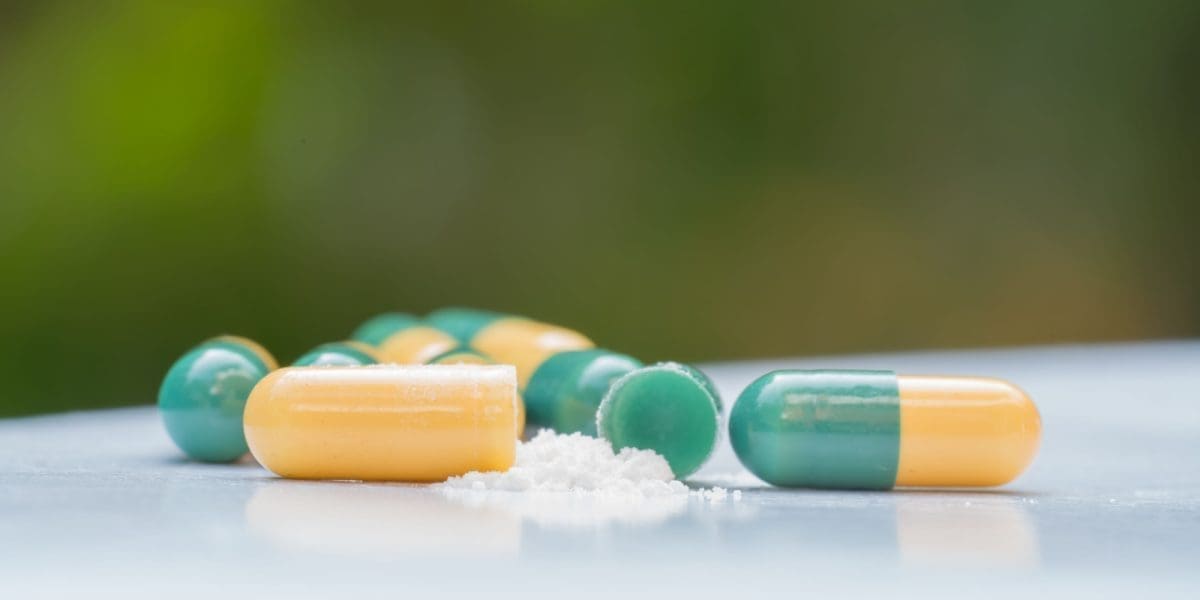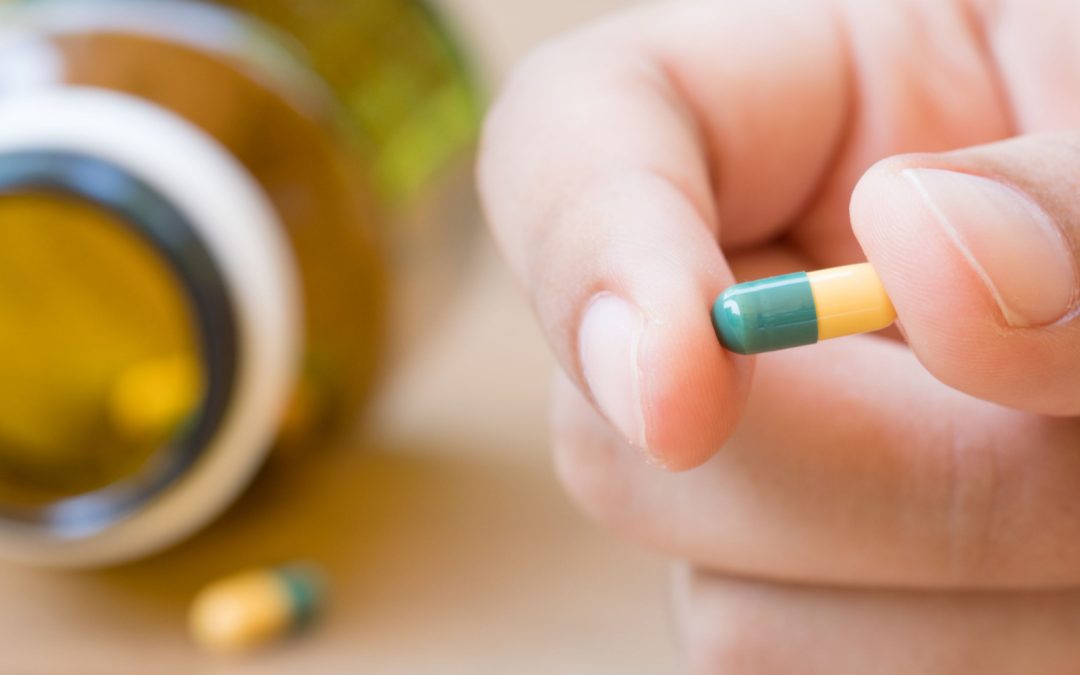Tramadol is a prescription narcotic opioid used for managing pain that is often taken daily. Although tramadol can be taken safely, that doesn’t eliminate the risk of developing a tramadol addiction. Many people associate addiction with illicit drugs. However, prolonged or improper usage of controlled substances can also lead to addiction that requires professional help to overcome. If your tramadol usage is negatively impacting your physical and mental health and other aspects of your life, help is available at The Willough at Naples.
What Is Tramadol?

Tramadol is a synthetic opioid, and like most pain relievers, comes in the form of a tablet or capsule. It’s made from a combination of opioid medication and monoamine reuptake inhibitors (MRI). This means that the drug affects the opioid receptors in the brain in addition to inhibiting the reuptake of norepinephrine and serotonin to produce pain relief without the depressant effects of other opioids. In this way, it acts as a stimulant and can cause users to experience bursts of energy and euphoria after taking higher doses, which is a common cause of tramadol addiction.
Moreover, the structure of tramadol is similar to that of morphine, but it’s only about one-tenth as potent. Although doses tend to start at a low level, they are commonly increased or used in combination with other pain relievers to treat severe or chronic pain. However, increasing your dosage or mixing medications without the guidance of your doctor can lead to potentially dangerous side effects such as tramadol addiction or tramadol interactions.
Signs of Tramadol Addiction
Tramadol is classified as a schedule IV drug, which means it has a low potential for abuse and a low risk of dependence. Due to this classification and its low potency in comparison to other painkillers, many people believe that their risk for addiction is so low they don’t have to worry about it. However, this misconception contributes to the number of people who develop a tramadol addiction without even realizing it. All opioids have highly addictive properties, which can be dangerous for those already at a high risk of drug abuse and addiction.
Signs you may have a tramadol addiction include:
- Taking more than the amount prescribed
- Reporting your medication as lost to get more
- Needing refills sooner than prescribed
- Doctor shopping
- Stealing medication or asking others for their medication
- Being unable to control your usage
- Experiencing withdrawal symptoms
- Problems at home, work, or school related to usage
- Withdrawing from friends and family to hide the usage
- Unsuccessful attempts to stop using
- Developing serotonin syndrome
Tramadol Addiction Treatment
Tramadol is a central nervous system depressant, which means it slows down lung and heart function to relieve pain in the body. This also puts users at a high risk of overdose if they take too much. While this makes it effective in treating pain, prolonged use can cause users to become dependent on tramadol, making it nearly impossible to function without it. The habit-forming properties of tramadol increase the chances of addiction and dependence for those with a family or personal history of substance abuse and mental illness. But if you’re already struggling with tramadol addiction, it’s not too late to get help.
Medical Detox
Tramadol addiction often stems from physical dependence on the drug. This occurs when your tolerance for your prescription has increased to a point where your body no longer gets relief from the medication but requires it to function. Dependence encourages misuse because suddenly stopping can cause harmful or unpleasant withdrawal symptoms.
Withdrawal symptoms can make it harder to stop using tramadol and is often the cause of relapse. But these symptoms can be relieved through a variety of methods used in tramadol addiction treatment. One such method includes tapering, which involved medically-assisted treatment. This form of treatment is part of inpatient and outpatient treatment programs as you begin to address your substance use disorder.
Since tramadol is an opioid, the withdrawal symptoms are similar to those experienced by other opioids such as oxycodone and hydrocodone. The symptoms of tramadol withdrawal include:
- Anxiety
- Mood swings
- Insomnia
- Nightmares
- Nausea and vomiting
- Muscle pain
- Shivering
- Tremors
- Tingling sensations
- Hallucinations
To safely overcome withdrawal symptoms and rid your body of the substance, medical professionals can guide you through a medical detox. Medical detox provides 24/7 supervision from physicians and mental health professionals as you stop taking tramadol. The process can take anywhere from a couple of days to a week depending on the dosage and duration of your tramadol usage. Above all, starting with detox decreases your risk of relapse and helps you fully commit to tramadol addiction recovery.
Behavioral Therapy

To effectively recover from tramadol addiction, your physical and emotional dependence on it must be addressed. Completing detox and overcoming withdrawal symptoms is the first step toward recovery. However, you may continue to crave the effects of the drug despite the harmful impact it had on your well-being. But through therapy and other addiction treatment programs, you will learn to cope with cravings and avoid triggering situations to continue recovery.
Behavioral therapy such as cognitive behavioral therapy teaches you to identify and alter harmful thoughts and behavioral patterns. As a result, you learn how to improve your emotional functioning for an increased quality of life. This can help you overcome the emotional effects of drug abuse and work through the underlying causes of your addiction.
In addition to cognitive behavioral therapy, adults seeking to cope with mental health problems alongside their tramadol addiction can do so through the dual diagnosis program. Moreover, the dual diagnosis program consists of a variety of subset treatment programs. All of which address the complex relationship between mental health and addiction.
Additional evidence-based treatment modalities used at The Willough at Naples include:
- Medication evaluation and management
- Group therapy or support groups
- Behavioral health services for family members
- Recreational therapy
- Relapse prevention planning
- Links to community-based services
Your treatment for tramadol addiction will be designed according to your needs and recovery goals. Furthermore, this can include finding alternative ways to treat the chronic pain that contributed to your addiction.
Where to Get Help for Tramadol Addiction
If you are seeking help to overcome your tramadol addiction, The Willough at Naples can provide the support you need. We offer a variety of programs and treatment modalities to meet the unique needs of every patient. The safe and supportive environment of our recovery center will help you begin your healing journey.
To learn more about our tramadol addiction treatment programs, call our admissions team at 800-722-0100. You can also submit a confidential contact form online. They will determine the best treatment approach according to your needs. Our staff can help you overcome your addiction and find alternatives to manage your pain one day at a time.

